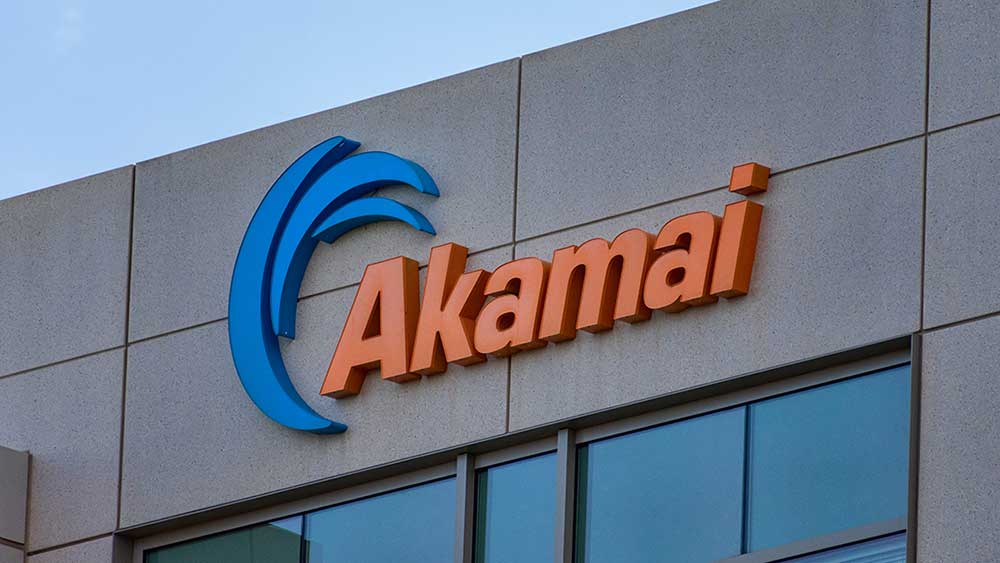Tag Archive for: guidance
AKAM Stock Falls As Computer Security Misses, Guidance Below Estimates
/in Computer Security
Shares in Akamai Technologies (AKAM) fell as third quarter guidance for AKAM stock fell short of expectations.
X
For the current September quarter, Akamai said it expects EPS in a range of $1.21 to $1.26 with revenue of $875.5 million at the mid-point of guidance. Analysts had estimated Q3 EPS of $1.30 on revenue of $902 million.
“We think AKAM stock looks challenged given its international exposure and slowing security business,” said Needham analyst Alex Henderson in a report.
The Cambridge, Mass.-based company said June-quarter earnings fell 5% to $1.35 an adjusted share. Akamai revenue climbed 6% to $903 million.
Analysts expected Akamai earnings of $1.31 a share on revenue of $899 million for the period ended June 30. A year earlier, Akamai earned $1.42 a share on sales of $853 million.
Akamai stock was down 2.3% to 92.90 in morning trading on the stock market today. AKAM stock had dropped 18% in 2022 at the Tuesday close.
AKAM Stock: Security Revenue Misses
Meanwhile, the company said Q2 earnings before interest, taxes, depreciation and amortization, or EBITDA, rose 1% to $388 million, versus estimates of $386 million.
Further, the company said security product revenue, including acquisitions, rose 17% to $381 million vs. estimates of $391 million.
Heading into the Akamai earnings report, the stock had a Relative Strength Rating of 47 out of a possible 99, according to IBD Stock Checkup.
Biggest Provider Of CDN Services
Akamai is the biggest provider of content delivery network services that also increase the speed of e-commerce transactions and business software downloads.
In addition, Akamai has expanded into cybersecurity services.
Continuing an acquisition spree, Akamai in February acquired Linode for $900 million. Linode is a cloud computing infrastructure provider for businesses. The deal better positions Akamai versus Cloudflare (NET). Cloudflare stock jumped on its second-quarter earnings report.
If you’re new to IBD, consider taking a look at its stock trading system and CAN SLIM basics. Recognizing chart patterns is one key to the investment guidelines.
Follow Reinhardt Krause on Twitter @reinhardtk_tech for updates on 5G wireless, artificial…
OCR Provides Guidance on the Privacy of Data Stored on Health Apps and Mobile Devices | BakerHostetler
/in Mobile Security
In the wake of the U.S. Supreme Court’s decision in Dobbs v. Jackson Women’s Health Organization, many individuals and organizations have expressed uncertainty about the protection afforded to data stored on health apps, including cycle trackers.[1] As a result, the U.S. Department of Health & Human Services Office for Civil Rights (OCR) has issued guidance on multiple issues concerning the collection and sharing of personal health data. Recently, they issued guidance clarifying the extent to which information collected by cycle trackers and other health apps is protected. The OCR also provided tips for individuals wishing to protect the data stored on their personal devices or potentially shared with third parties.
Key Takeaway: Most importantly, the OCR made clear that the privacy and security rules of the Health Insurance Portability and Accountability Act (HIPAA) generally do not protect the privacy or security of your health information when it is stored on your personal mobile device. Those rules protect the privacy and security of your medical and other health information only when it is created, received, maintained or transmitted by covered entities, including health plans and most healthcare providers, and their business associate vendors.
This means that internet search history, information voluntarily shared online and geographic location information is not protected by the HIPAA rules and could potentially be collected or viewed by others. In most cases, the HIPAA rules also do not protect the privacy of data you download or input to apps for personal use, regardless of where the information came from. There is a limited exception for apps (such as Epic’s electronic medical record patient portal app, MyChart) that were contracted by or on behalf of a covered entity to assist with patient or member services; however, information stored on most widely used apps would not be protected.
The guidance further warns that simply downloading or using a health app may be enough to give the developer permission not only to collect and retain your information but also to sell or share it with data brokers, marketing and analytics firms, law enforcement personnel…
Indian government’s confidential infosec guidance leaks • The Register
/in Computer Security
India’s government last week issued confidential information security guidelines to the 30 million plus workers it employs – and as if to prove a point, the document quickly leaked on a government website.
The document, and the measures it contains, suggest infosec could be somewhat loose across India’s government sector.
“The increasing adoption and use of ICT has increased the attack surface and threat perception to government, due to lack of proper cyber security practices followed on the ground,” the document opens.
“In order to sensitize government employees and contractual/outsourced resources and build awareness amongst them on what to do and what not to do from a cyber security perspective, these guidelines have been compiled.”
Ironically, the document proves why it’s needed. Despite being marked “Restricted” and for access only within Indian government departments and ministries – and including an exhortation that those sent the document “should honor this access right by preventing intentional or accidental access outside the access scope” – The Register was able to find it on an Indian government website with minimal effort.
Whoever posted it there probably needs to re-read the document. One of the instructions it includes is “Don’t share any sensitive information with any unauthorized or unknown person over telephone or through any other medium.”
That instruction is one of 24 “Cyber Security Don’ts” that includes measures such as not re-using passwords or writing them on sticky notes left around the office, running only supported operating systems, and not using browser plug-ins. Users are not to save data to local drives, or click on links or attachments emailed by unknown parties.
“Don’t install or use any pirated software (ex: cracks, keygen, etc.)” is another directive, as is a proscription on jailbreaking…



